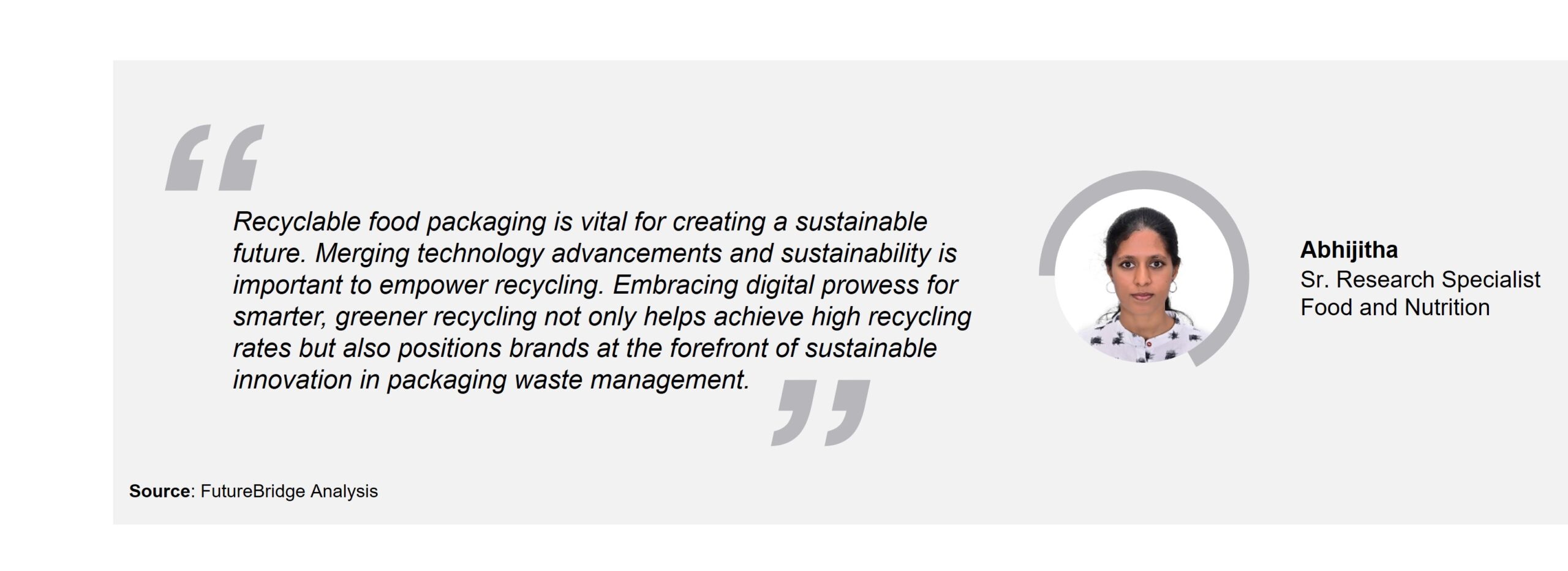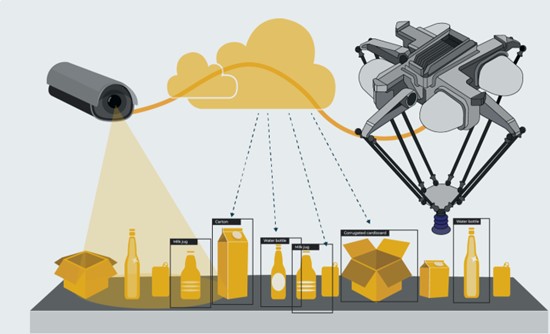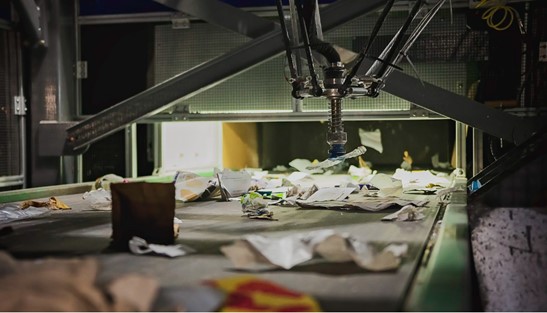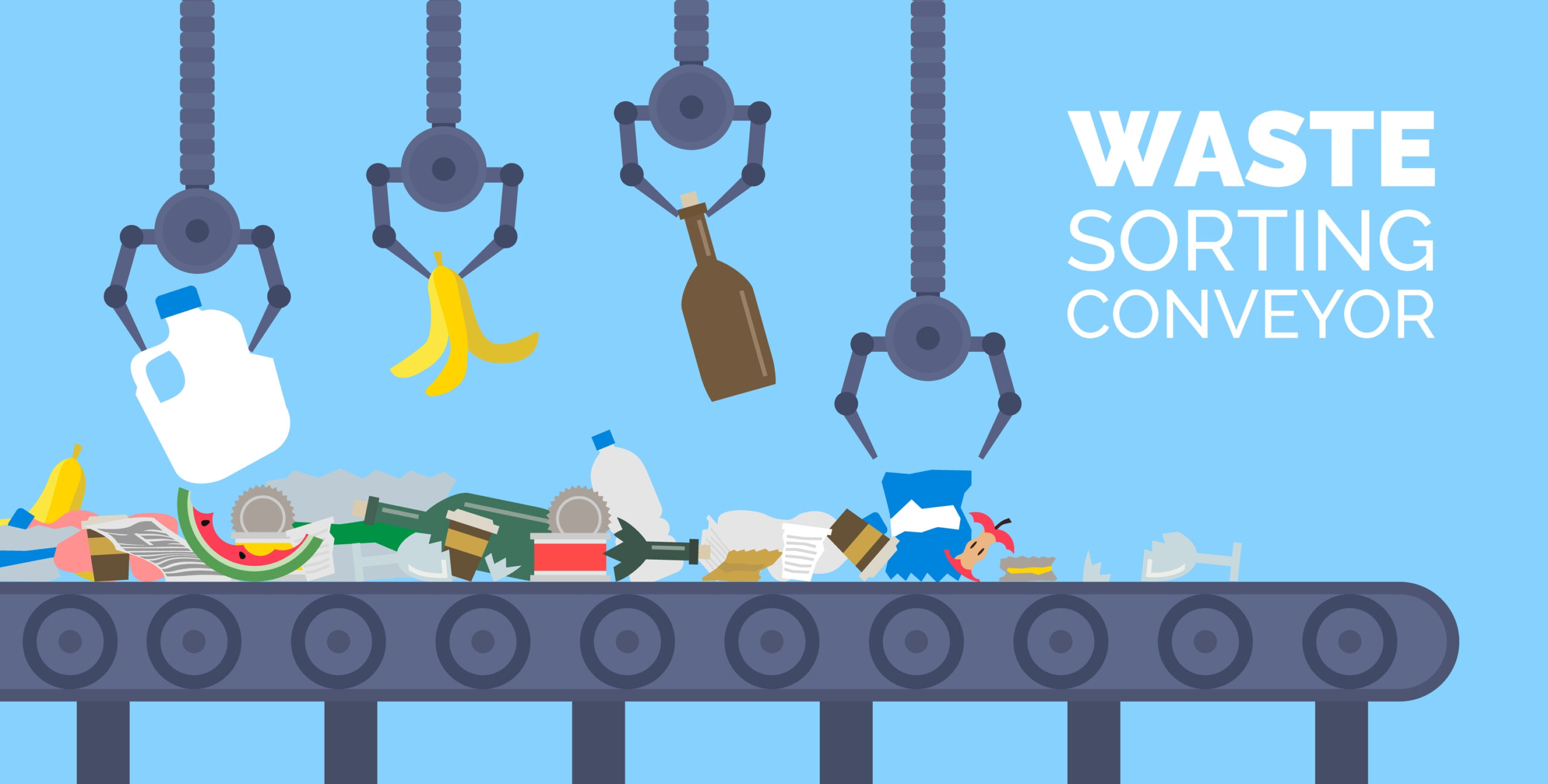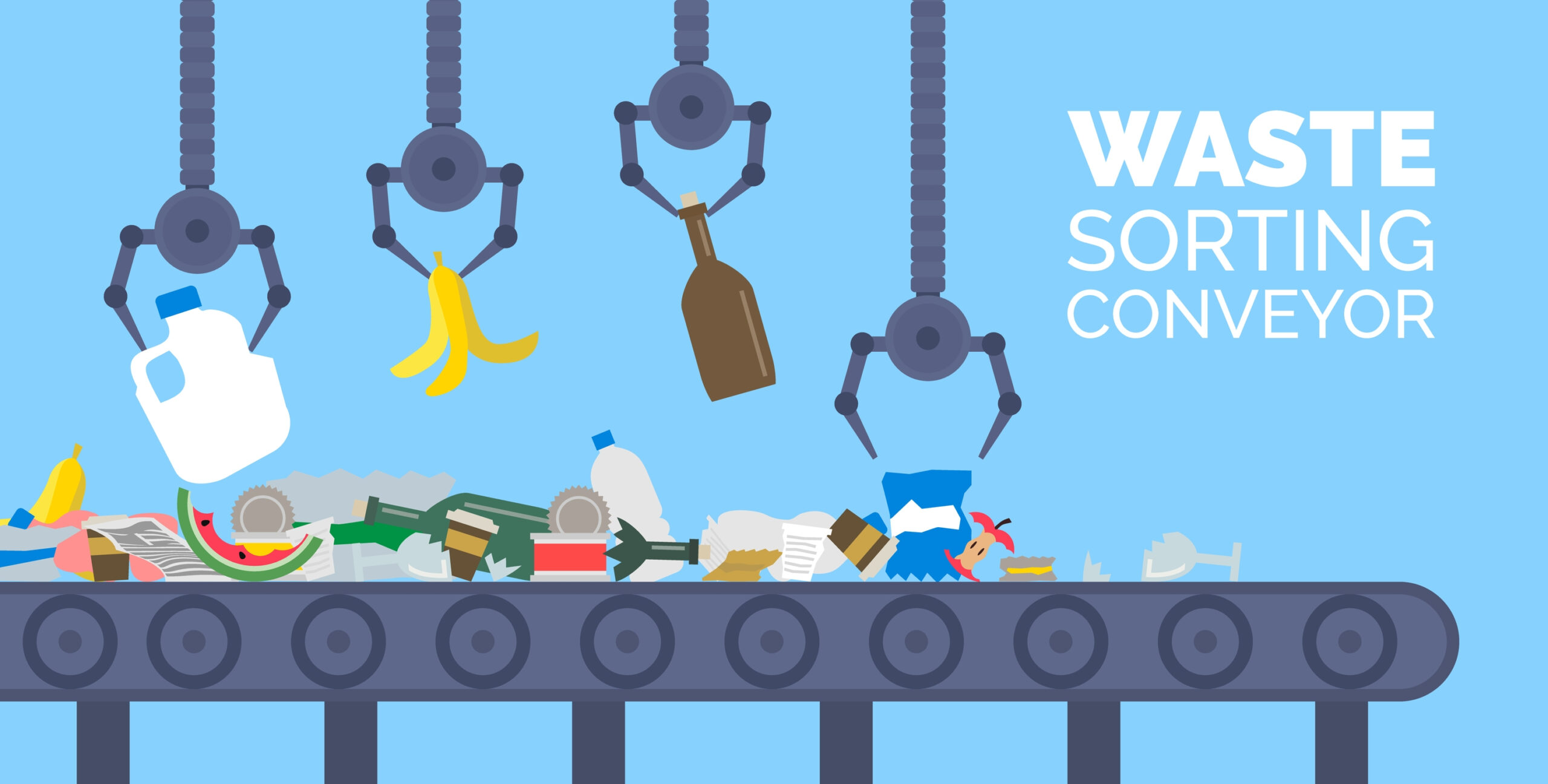The Key to Transformation
To tackle the packaging waste challenge effectively, brands must harness the power of digital integration. By combining cutting-edge technologies, recyclers and packaging, companies can improve the accuracy, quality, safety, and efficiency of packaging waste management. New technologies such as the Internet of Waste, Artificial Intelligence (AI), and robotics are becoming increasingly important in optimizing resource utilization, minimizing waste, and transitioning towards a more sustainable and circular economy.
Recycling Reimagined with AI and Machine Learning (ML)
The integration of AI and ML into recycling processes represents a monumental leap forward in our journey toward a sustainable future. AI-driven sorting systems can identify and separate materials with unparalleled precision, ensuring that recyclables are directed to appropriate streams. This reduces contamination and improves the overall quality of recycled materials. By automating the sorting process and reducing the need for manual labor, AI and ML solutions can lead to cost savings in waste management and recycling operations.
Researchers at the University of Lorraine have introduced a smart plastic waste collector that promises to reshape waste management and contribute to a closed-loop plastic waste supply chain. This collector focuses on identifying recyclable plastic waste, playing a pivotal role in establishing an open-source hardware ecosystem for plastic recycling. Over the course of nine months, this groundbreaking experiment has successfully collected 60 kilograms of plastic, providing insights into distributed recycling implementation. The potential for reducing plastic waste in our environment is undeniable, and this smart collector is a significant step towards that goal.
Another recent study highlights how certain design elements such as black coloring, large-area printing, and high shrinkage of shrink sleeves negatively affects their sortability during NIR-based sorting processes. Adding spectral data from sleeved bottles to the machine learning training dataset improved classification accuracy. This underscores the importance of diverse data in enhancing sorting capabilities. The research demonstrated that selecting suitable machine learning algorithms and fine-tuning hyperparameters based on the specific sorting task can significantly enhance the accuracy of sorting sleeved materials.



